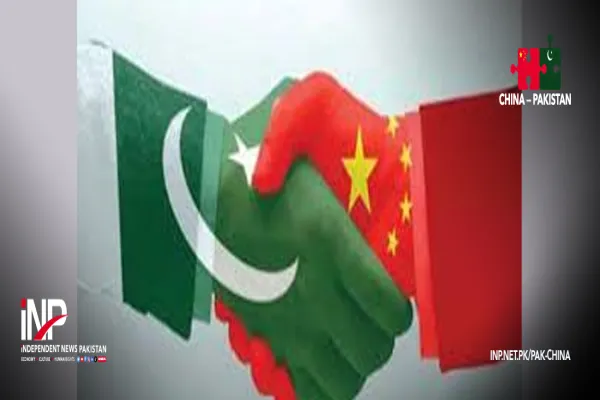i NEWS PAK-CHINA
Caretaker Prime Minister Anwaar-ul-Haq Kakar on Friday said Pakistan aimed to utilize the position of China’s Xinjiang province as an “important node” of the economic corridor between the two countries. In this regard, he said, Pakistan would jointly work with China to identify the respective strengths of Gilgit Baltistan and Xinjiang. Addressing the students and faculty at Xinjiang University, he said “the two neighbouring regions had the potential to building synergies for improving the livelihoods of their people.” PM Kakar flew to Xinjiang’s capital Urumqi Thursday evening from Beijing where he participated in the Third Belt and Road Forum and met the Chinese leadership and other foreign dignitaries. The prime minister said as per the consensus reached in Beijing during his visit, a land border at Sost, Khunjerab would be converted into an all-weather border. “We would like to upgrade the customs and other logistics services to facilitate trade and the movement of people, he said. PM Kakar termed Gwadar a key component of the China Pakistan Economic Corridor (CPEC) and proposed to deepen economic cooperation by effectively using the sister-city relationship with China’s Kashgar and Karamay.
“We seek to learn from Xinjiang’s success in agricultural modernization and aim to set up a joint agricultural demonstration zone to introduce modern farming techniques and practices in Pakistan,” he said. He said Pakistan desired linkages with the industries of Xinjiang and Pakistan, particularly the Gilgit-Baltistan region with focus on cooperation in solar energy. He emphasized collaboration between the two regions in areas of culture, agriculture, tourism, education and joint research. Pakistan, he said, would like more of its students to study in China. He invited tourists from Xinjiang and other parts of China to visit Pakistan and mentioned that recently a 15-member group of Chinese tour operators visited Pakistan and returned via Sost Khunjerab border. The prime minister said Xinjiang was known for its rich diversity in culture and hospitality, adding that the region had a special place in the hearts of Pakistanis for the neighbourly linkages. Xinjiang, he said, was not only a channel of trade but a vital bridge connecting the two nations. Kakar said the unique Pak-China relationship was rooted in bilateral trust, shared aspirations and invaluable warmth nurtured by successive generations.
“Pakistan views its ties with china as a longstanding strategic partnership,” he said. He mentioned that as CPEC entered its new phase, it helped in developing Pakistan’s infrastructure and improved the lives of its citizens. “My visit to China is essential in chalking out a new road-map and a new vision based on economic, people-to-people bonds, sustainable development, peace and stability and academic and technical exchanges. He expressed Pakistan’s principled position on Xinjiang and unequivocal support to China on matters related to its core position. Kakar also spoke about the situation in the Middle East and called for efforts to stop the acts of barbarism against the people of Palestine. The prime minister on the occasion interacted with Pakistani and Chinese students and expressed high hopes for them to act as a bridge of friendship and brotherhood between their countries in the years to come. He also visited the History Museum at the Xinjiang University where he was briefed about the history of the 99 year old university.
Credit: Independent News Pakistan (INP) — Pak-China









